Could a healthy diet combat multiple sclerosis?
Based in Australia, Professor Lucinda Black has been exploring the links between diet and multiple sclerosis (MS).
TALK LIKE A NUTRITIONAL EPIDEMIOLOGIST
Calorie — the units used to describe the amount of energy in food
Case-control study — a study that compares two groups of people: one group with the disease and a similar group of people who do not have the disease
Cognitive decline — a gradual loss of mental abilities
Diet — the types of food and beverage that a person habitually consumes
Epidemiology — the study of the frequency, pattern and causes of health problems in populations
Fatigue — extreme tiredness
Gut microbiome — the trillions of microorganisms that live inside our digestive system
Legumes — the family of plants that includes foods such as soy, peas, beans and lentils
Nutrition science — the study of nutrients in food, how the body uses them, and the relationship between diet, health, and disease.
Vegan diet — a diet that excludes animal products
What should we eat? It might sound like a simple question, but everyone seems to have a different answer. Is it five fruit and vegetables a day we should be counting, or calories consumed? Hinduism tells us not to eat beef, Judaism says it is pork we should avoid, and environmentalists suggest going vegan – yet the supermarket is full of steak and bacon. Almost every conceivable diet, from cutting out carbohydrates to only eating fruit, has its supporters.
Part of the confusion comes down to the complexity of nutrition science. Thanks to a maze of other factors, from genetics and gut microbiome to exercise and psychology, it is fiendishly difficult to draw a straight line between diet and health. However, this does not stop committed researchers like Professor Lucinda Black and her team from taking on the challenge. As a nutritional epidemiologist, Lucinda is working hard to help people with multiple sclerosis (MS), and those at high risk of developing MS, base their diets on good evidence.
What is multiple sclerosis?
MS affects the central nervous system, which is made up of the brain and spinal cord. When you want to move a muscle, your brain sends an electrical signal through the nerve cells telling the muscle what to do. Similarly, signals are sent to the brain from around the body to tell it about movement and function, and senses such as vision, hearing, touch, taste and smell. Nerves have a protective sheath called the myelin, which helps to ensure messages are sent quickly and efficiently. It is the myelin that gets damaged when a person has MS. This means parts of the nervous system start misbehaving or breaking down: signs and symptoms can include fatigue, numbness, weakness, vision impairment and cognitive decline.
MS is a lifelong condition, and no cure has been found yet. It can become severe: for example, some people lose their ability to walk or have difficulty swallowing. However, scientists around the world are working hard to find a cure, and modern treatments allow many people to live comfortably with the disease.
How can researchers study the links between diet and MS?
Research can help us understand how diet contributes to people getting MS and, after a diagnosis of MS, how diet might affect the severity of the disease. Researchers often use case-control studies to understand disease risk.
They recruit people with a disease (cases) and healthy people (controls) who are similar to those who have the disease, such as matching people on whether they are male or female, how old they are and where they live. Lucinda is using data from studies from around the world that have recorded information from people with MS, and healthy control groups, to see if people who ate or avoided certain foods were more likely to get MS.
The same studies might follow people with MS over many years, even decades. If people with MS who ate or avoided certain foods had less severe symptoms over time, then this could suggest that diet was helping to combat the disease. This kind of study can provide clues about what diets or foods might be worth testing in a randomised controlled trial.
A randomised controlled trial provides a stronger level of evidence than asking people what they eat over time. Lots of people take part, and they are randomly allocated into two groups: one group follows the specified diet and the other group does not. The health of everybody in the trial is measured at the beginning and the end of the study, and the data are analysed afterwards. If people in the group who followed the diet were statistically healthier at the end than people who did not follow the diet, then this is good evidence that the diet made a difference.
Could healthy eating help prevent MS?
Healthy eating is important for everyone. For people at high risk of MS, such as those with a close family member who has MS, a healthy diet may help prevent onset of the disease. Using data from an Australian case-control study, Lucinda analysed the diets of 698 people, 252 of whom were ‘case’ participants who had damaged myelin – a common sign of MS. The other 446 people (the healthy ‘control’ group) were chosen to match the case participants according to age, sex and where they lived. She found a link between diet and the risk of getting MS: a healthier dietary pattern (high in poultry, fish, eggs, vegetables and legumes) was linked to a lower risk of developing MS.
Using the same set of participants, Lucinda investigated people’s fish consumption in more detail. She found that higher fish consumption was linked to lower risk of getting MS, particularly consumption of oily fish, such as salmon, mackerel, tuna and sardines, which are “high in vitamin D and omega-3 fatty acids, both of which may be beneficial in relation to MS”.
In another study, this time from the US, Dr Alison Daly analysed dietary intake in childhood and adolescence recalled by 505 adults with MS and 556 matched controls. The participants were asked to remember the foods they ate when they were growing up. Higher consumption of fruit, yoghurt and legumes during childhood and/or adolescence was linked to lower risk of developing MS as an adult.
Having identified some foods that may be important for the risk of getting MS, Lucinda is now looking at links between these foods and how quickly the disease progresses in people who already have MS – could certain foods or nutrients help reduce the severity of MS?
Could healthy eating help people with MS?
Reference
https://doi.org/10.33424/FUTURUM393
There is a lot of confusing information about the best diet for people with MS. “People with MS often look for advice on the internet,” Lucinda says. “But searching online for ‘diet to cure MS’ gives over 25 million results, including some that recommend going vegan, and others that recommend lots of meat!” In reality, there is not yet enough scientific evidence to be sure what the best diet is for people with MS. For people with MS, though, a healthy diet can be a tool to combat symptoms and common problems like fatigue and obesity.
Dr Rebecca Russell interviewed people with MS to uncover their thoughts about diet. She asked people with MS if they had changed their diet after they were diagnosed, whether they thought that food affected their symptoms, and what dietary advice they had received. “They told us that they didn’t get much, if any, advice about diet from health professionals,” says Rebecca. “They were confused about where to find credible advice.”
Lucinda and her team aim to generate strong scientific evidence and create dedicated resources that help people with MS make informed decisions about their diet. They are developing a nutrition education programme specifically for people with MS, giving participants a chance to hear from experts and share their experiences with each other.
 Professor Lucinda Black
Professor Lucinda Black
Institute for Physical Activity and Nutrition, School of Exercise and Nutrition Sciences, Deakin University, Australia
Adjunct Professor, School of Population Health, Curtin University, Australia
Field of research: Nutritional Epidemiology
Research project: Exploring the role of diet in multiple sclerosis (MS)
Funders: MS Western Australia (MSWA), MS Australia
ABOUT NUTRITIONAL EPIDEMIOLOGY
Can we prevent and manage diseases by choosing what we eat? This is the overarching question that nutritional epidemiology tries to answer. Researchers like Lucinda hunt for patterns that might link diet and disease, perform statistical analyses, and set up trials to test their hypotheses. Their ultimate goal is to provide evidence to support dietary recommendations that will protect us from illness or help relieve our symptoms when we do become ill.
What are the challenges in nutritional epidemiology?
Think about what you ate yesterday. Can you remember exactly what you ate and drank, and how much of it you consumed? Could you recall how often you ate certain foods in the last year? According to Lucinda, getting accurate information about what people eat is the most challenging part of nutritional epidemiology. Some people might not remember what they ate, and it is nearly impossible to keep track of every food and drink you consume. In addition, the very act of taking part in a study and recording your diet could change your behaviour: if you had to write down everything you ate next week, would you think twice before choosing an unhealthy snack, or would you ‘forget’ to tell the researcher?
Furthermore, nutritional epidemiologists cannot perform highly controlled laboratory experiments like in chemistry or physics. This means there are lots of other factors that may confuse the results. To try and control for these factors (which could be anything from smoking habits to hours spent outside or time spent watching TV), researchers need to include as many people in their studies as they can and collect a lot of information in addition to dietary intake.
What diseases do nutritional epidemiologists study?
Nutritional epidemiologists can study any disease. Some try to determine if certain foods cause cancer, while others are interested in heart disease or viruses such as SARS-CoV-2, the virus which causes COVID-19. Lucinda, meanwhile, has found her niche in MS. “It is a pleasure to work in the field of diet and MS,” she says. “People with MS are so interested in nutrition and motivated to make healthy changes. It is a privilege to be doing something I love and know that the findings are helping people with MS.”
Pathway from school to nutrition science
• In general, a good background for studying nutrition science will include taking biology/human biology, chemistry and maths at school.
• Many universities offer undergraduate or postgraduate degrees in nutrition science, food science and dietetics.
• Research is one of many pathways for a nutrition scientist. If you are interested in being a researcher in nutrition, you will typically need to do a PhD in nutrition or food science.
Explore careers in nutrition science
• Nutritional epidemiology is just one aspect of nutrition science. Others include dietetics, sports nutrition, public health nutrition, food science, food sustainability and animal nutrition.
• Outside of universities, nutrition scientists may join companies that develop and manufacture food products, provide nutritional counselling to groups or individuals to improve health and well-being, or join organisations or government departments that promote healthy eating.
• Food scientists are involved in new food product development, quality assurance, food regulation, research and development.
• Dietitians provide guidance about how to manage diets and nutrition for people with health conditions. They often work in hospitals making sure patients are getting sufficient nutrients to manage their disease.
• Many countries have a nutrition society, including Australia (www.nsa.asn.au) and the UK (www.nutritionsociety.org). Contact your national society to see if they have volunteering opportunities and sign up to receive their newsletter.
Meet Lucinda
What were your interests when you were younger?
I had a chemistry set and I kept a lab book to record my experiments. I recorded successes and failures with growing crystals, producing fizzy and colourful chemical reactions, and writing secret messages in invisible ink.
What inspired you to become a nutritional epidemiologist?
As a young adult, I faced challenges with my health. With the help of a nutritionist, I changed my diet substantially and I saw the power of nutrition to transform health and well-being. I soon became passionate about nutrition and decided to study nutrition to help others.
Initially, my research focused on the effects of vitamin D. However, after speaking at an MS conference about vitamin D, a person with MS came up to me and said, “What I really want to know is, what should I eat?” When I tried to find an answer in the scientific literature, I discovered a major knowledge gap, so I set about trying to answer that question.
What are your proudest career achievements so far?
My proudest achievements are seeing my students succeed in research. I know that I have been instrumental in helping them achieve their goals, and it’s very rewarding to see their careers develop. I also enjoy involving people with MS in our research – when they tell us we are making a difference, I know we are on the right track.
As a nutritional epidemiologist, do you enjoy cooking and eating?
I enjoy cooking and eating even more since studying nutrition. I enjoy knowing that what I’m eating is providing my body with the best nutrition possible. I can look at my meal and know pretty much exactly what it’s providing me! Luckily, my tastes have changed from preferring junk food to preferring healthy food. I still enjoy small treats most days, like a homemade chocolate mousse made with rich dark chocolate.
What do you enjoy doing in your spare time?
Pilates and ballroom dancing keep me fit and healthy, and they are a great way to get moving after a day at my desk in academia.
Lucinda’s top tips
1. It’s helpful to have a long-term goal in mind. At the same time, enjoy the journey and be flexible, because the path may not be linear and the goal may change.
2. Choosing to follow what you are good at and what you enjoy means that work is likely to be fun. Monday morning can be as exciting as Friday afternoon if you follow your passion.
3. Remember that setbacks are also opportunities – something that seems like a setback at the time might lead to an unexpected and positive outcome later.
Meet the team at Curtin University
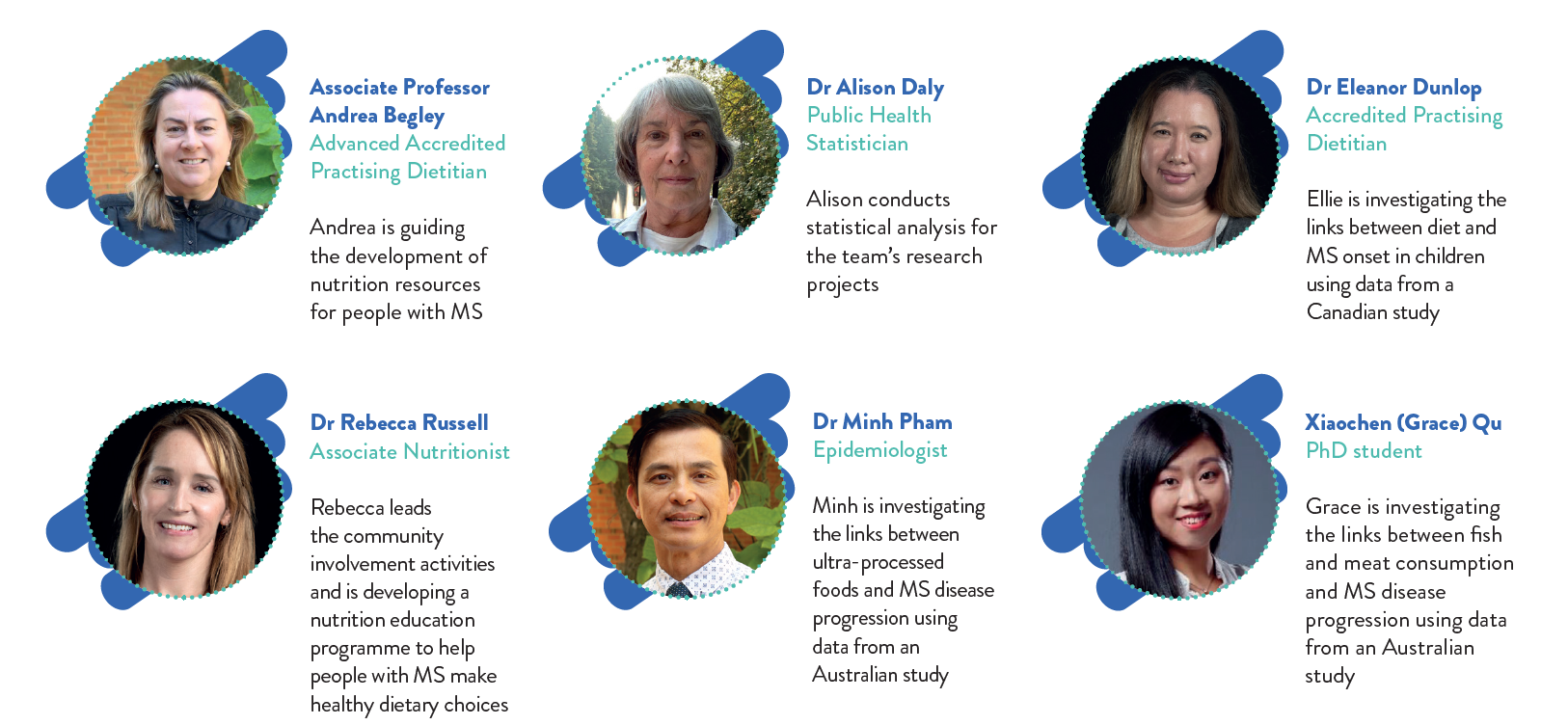
Do you have a question for Lucinda?
Write it in the comments box below and Lucinda will get back to you. (Remember, researchers are very busy people, so you may have to wait a few days.)

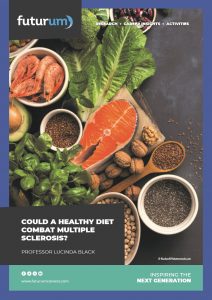
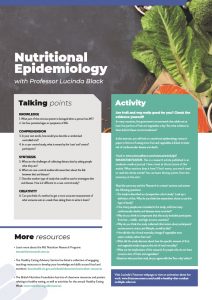

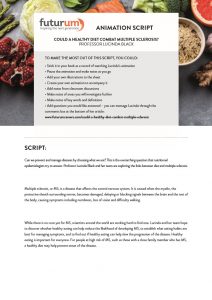
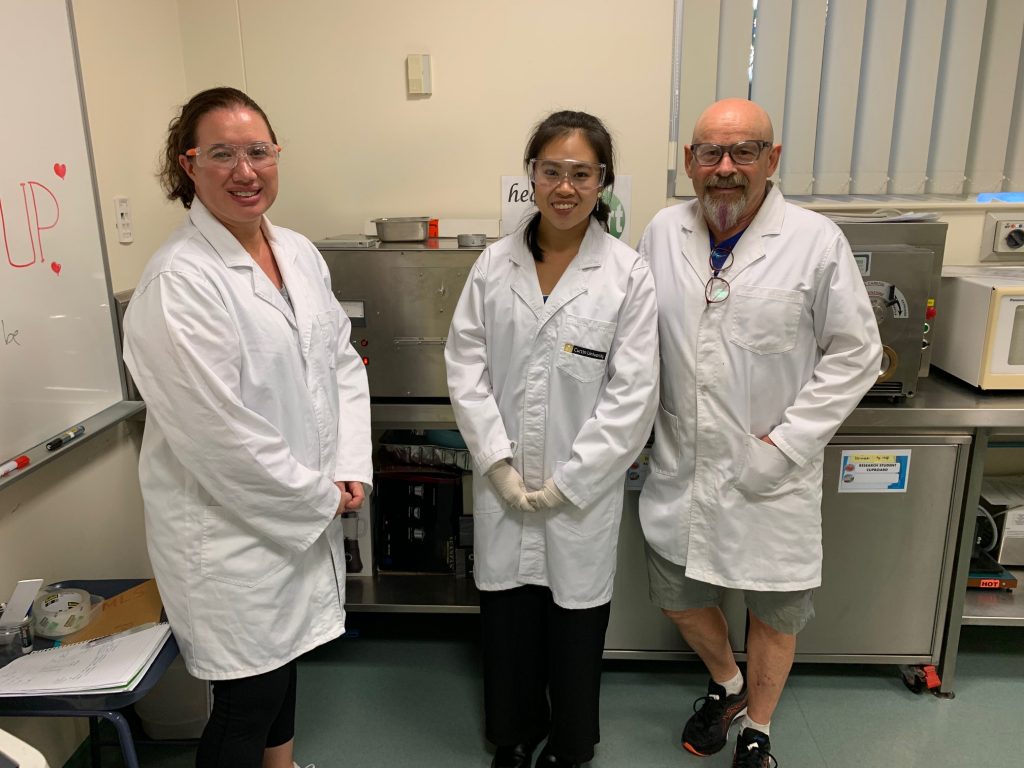
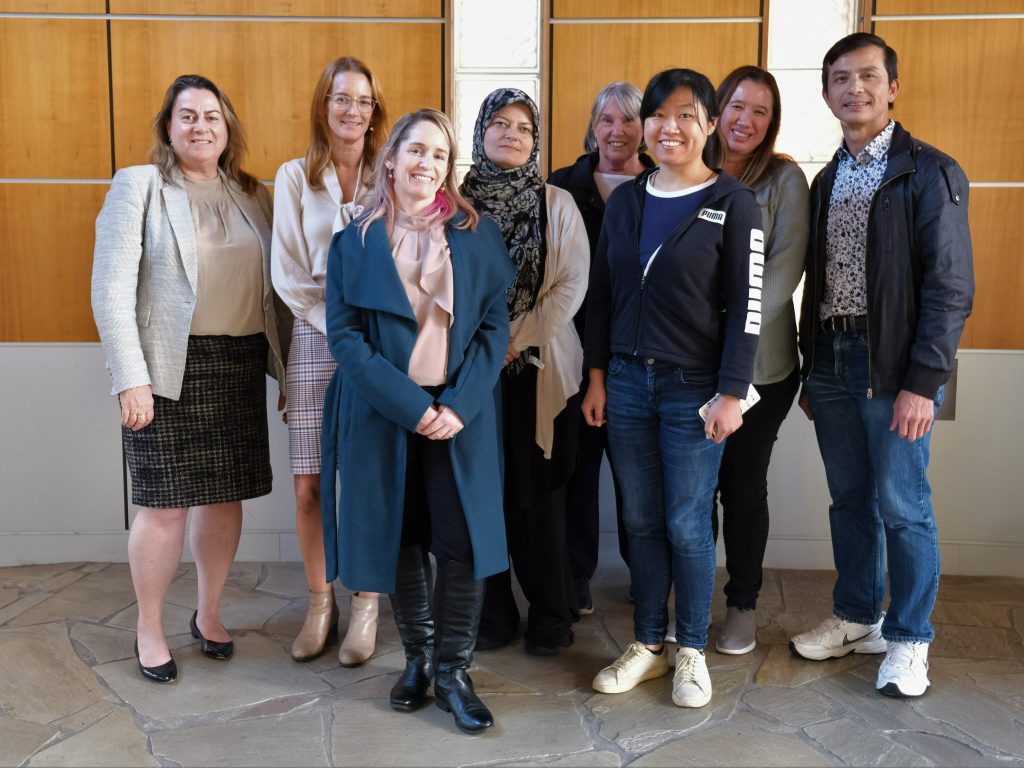
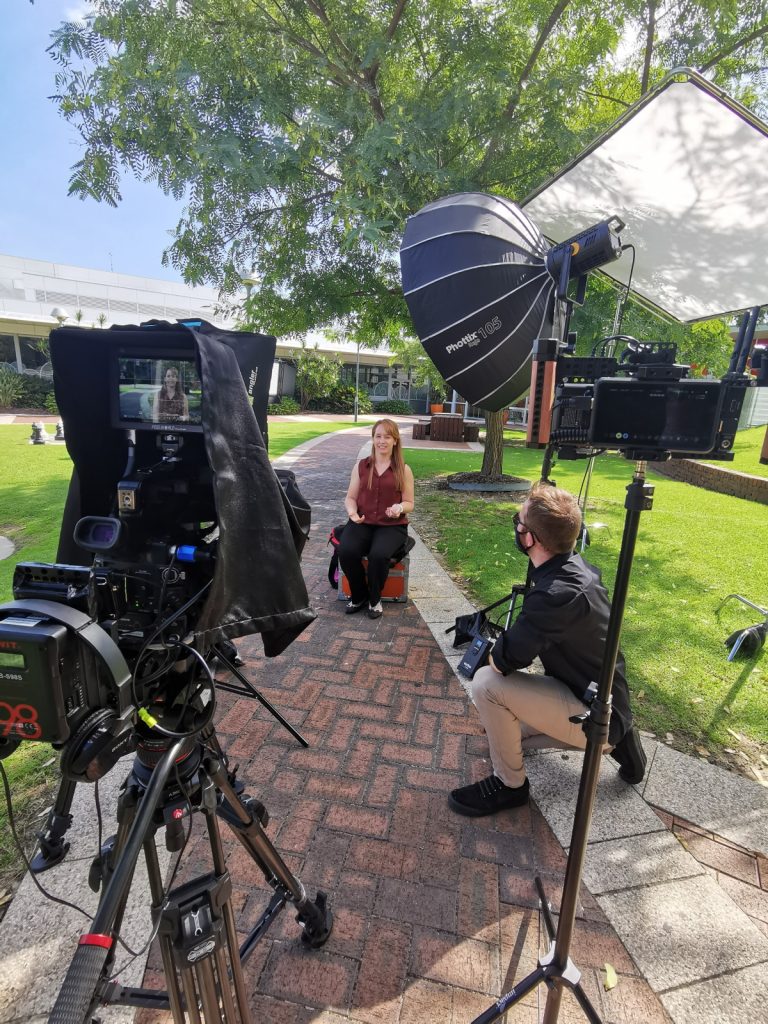
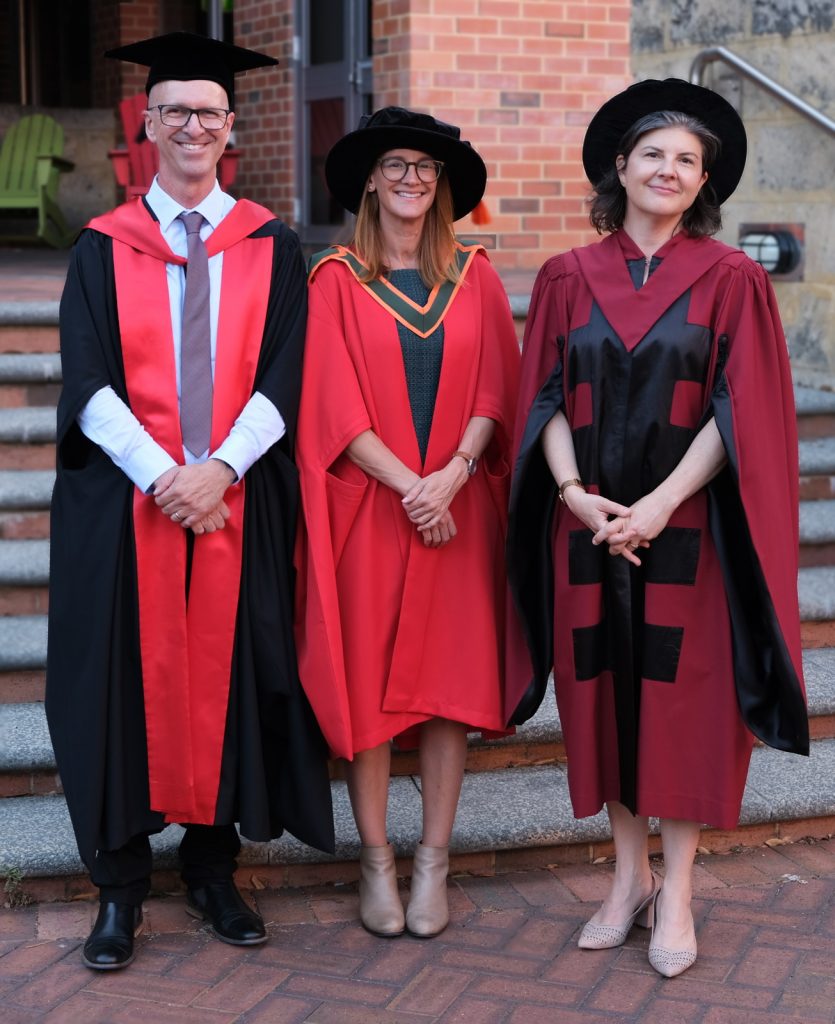

I was diagnosed with Multiple Sclerosis when I was 52 years old 4 years ago. The Bafiertam did very little to help me. The medical team did even less. My decline was rapid and devastating. It was muscle weakness at first, then my hands and tremors. Last year, a family friend told us about Natural Herbs Centre and their successful MS Ayurveda TREATMENT, we visited their website natural herbs centre and ordered their Multiple Sclerosis Ayurveda protocol, i am happy to report the treatment effectively treated and reversed my Multiple Sclerosis, most of my symptoms stopped, I’m able to walk and my writing is becoming great, sleep well and exercise regularly. I’m active now, I can personally vouch for these remedy but you would probably need to decide what works best for you🧡.
Thank you for your comment Terrica, we are pleased to hear your health has improved and the treatment has worked for you.
Hi Jeanine,
Thanks for your comment, we are pleased you have found a treatment that works for you.
Futurum Webmaster